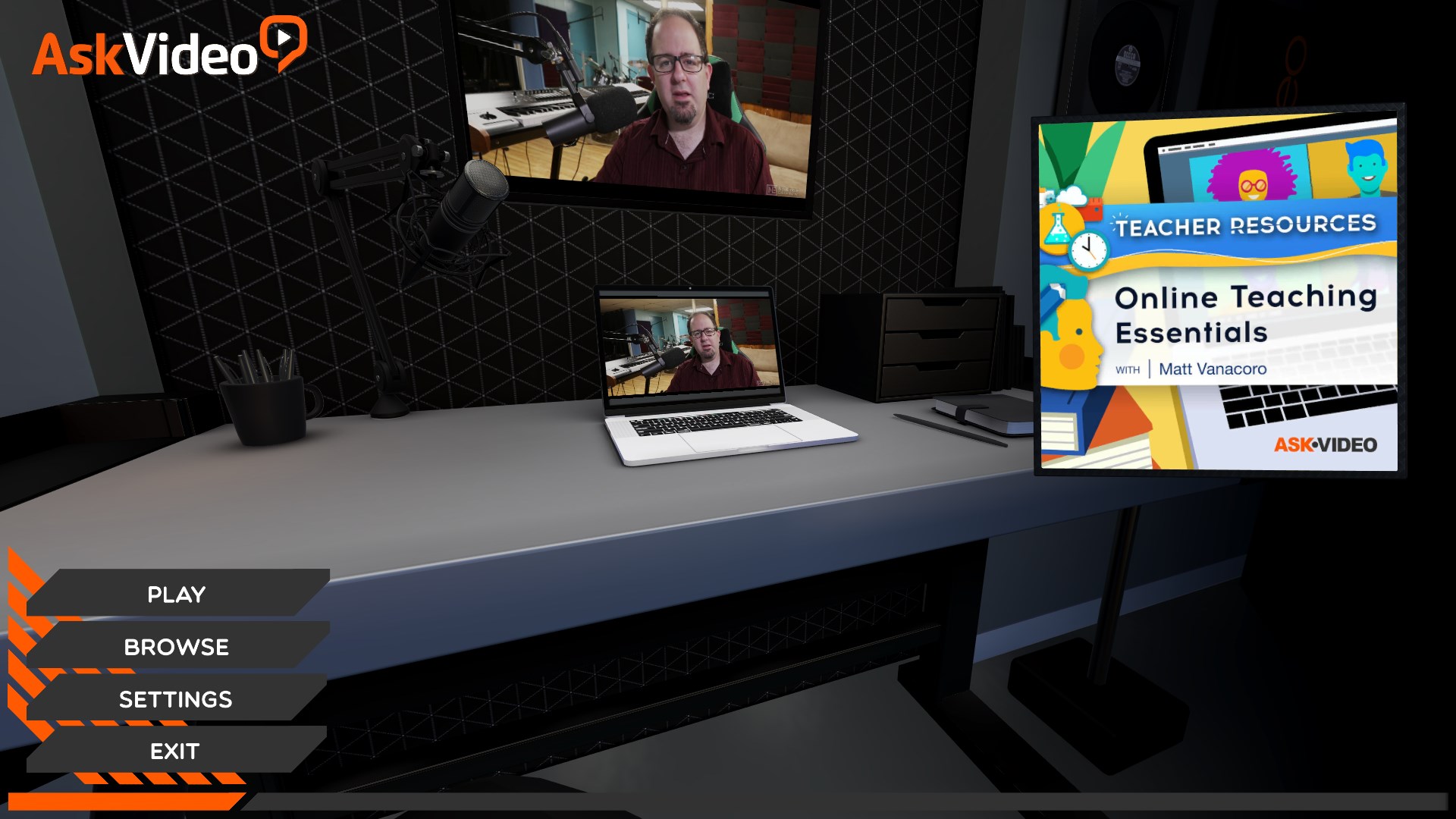7 Tips on How to Play Chess Alone
Por um escritor misterioso
Last updated 27 fevereiro 2025
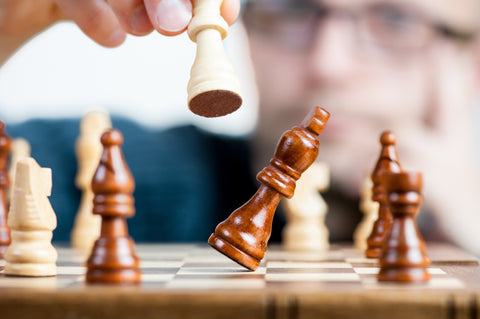
Learning how to play chess alone is a great way to discover exactly what kind of chess player and strategist you are. See how to play chess against yourself here.
If you’re someone with a shiny new chess set, lots of eagerness to learn the game, but a shortage of people to play against, this article is for you. That’s because it deals with the practice of learning how to play chess alone, from setting up the board, to strategising your win, to how playing chess against yourself is actually beneficial. Is it Good to Play Chess Against Yourself? You might not have heard about learning in this way, but it’s much more commonly practised than you might realise, with some of the greats like Bobby Fischer often honing their skills against themselves. So to answer the question- yes, it is good to play chess against yourself as it is a simple way to learn the game and discover what sort of player you are as well. How to Play Chess Against Yourself: 7 Tips to Follow So, to help you do the same, we look at 7 tips for you to get the best out of your self-playing chess practice. 1. Find a Quiet, Comfortable Place to Play The basics of knowing how to play chess alone begin with trying to find a nice, quiet, comfortable, and appropriate place to do so, as you’re going to be wanting to take your time. It’s very possible that you might want to leave the game and come back to it hours later, as it’s not meant to be played in a hurry. Above all, you should be looking for an area where your chess set is unlikely to be disturbed and all your carefully thought-out moves lost. 2. Use a Good Quality Chess Set Whilst the chess set you use to play solo chess isn’t vital, it is advisable that you use one with a bit of weight to the chess pieces to minimise the chances of them being knocked from their positions. What’s more, it will undoubtedly make the whole experience more enjoyable and increase the likelihood that you keep practising. A good quality wooden chess set or marble chess set would most certainly fit the bill. 3. Set Up Your Chess Board Your next job is to set up your chessboard and you’ll be wanting to place the white pieces first, as this is typically how a chess game will start. Of course, you can either set up the board to simulate the beginning of a game or set it up as if you were part-way through, although this might be best left until your skill is a bit more advanced and you want to practice getting out of particular situations you might encounter during a game. 4. Fully Consider Your Moves and Take Your Time Whether you’re using a Lord of the Rings-themed chess set or the solid wood variety, the principal of solo chess is the same - to develop your game. When playing chess against yourself, you have to remember that you have the liberty of time, so take full advantage of it by really deliberating your next move and the ramifications of doing so. Standing up and going off and doing something else in between moves and sitting on the opposite side of the board each time will also help you feel like you’re playing against an opponent. 5. Use a Marker to Keep Your Place One thing that can really derail your solo chess efforts is losing your place, which is really easy to do when you leave the board for any period of time as you play chess against yourself. Whatever you use to do so is kind of irrelevant, so long as it allows you to remember which side’s move is next, but many solo chess players use a bottle cap or coin to mark the side that had the last move. 6. Try to Avoid Copying Your Own Moves When playing chess against yourself, one thing that can quickly lead to stalemate is when you start copying or ‘mirroring’ your own moves. Although you’re playing both sides, you need to think like two separate people to have a worthwhile game, so it’s an idea to have one strategy for the white pieces and another for the black pieces. Mirroring can often happen when you don’t think your openings through and rush your moves and then you can end up not getting much out of the solo game at all. 7. Keep an Open Mind About Who’s Going to Win Bias can be a real problem when playing solo chess, as you may have a preconceived idea about which side is going to win based on where each chess set piece is situated on the board. Having bias one way or the other may have an effect on the amount of time you spend on the ‘losing’ side’s moves, so it’s best avoided if you want to get the full benefit of the solo chess process. Wherever possible, you need to remain thinking that you’re playing an opponent, rather than yourself and then you’ll keep the same intensity throughout, regardless of who you might think is winning. Practice Playing Chess Against Yourself in a Regular Basis to See Your Game Grow Solo chess can really help you develop your game and it’s particularly useful when opponents are a bit thin on the ground. Getting the absolute most out of it will depend on how you approach it, however, if you follow the tips we’ve given, you’ll have a much better chance of doing so. There are other things you can do, of course, but the advice we’ve provided here should set you fair for success. If you’re looking for the finest quality wooden, metal, or marble chess set choices online, we’d recommend that you take a look at our website . There you’ll find our comprehensive catalogue of chess equipment that’s backed by our industry-leading customer service. If you have any trouble choosing from the many available, give our friendly team a call on 01948 880 060 and we’ll be able to guide you to your perfect option. A good quality chess set can serve you well for a lifetime, so it’s worth choosing one that really inspires you to play. Thanks for reading our blog. We hope that it helps you enjoy solo chess and all that it offers to players of the game. We’ll be back with more tips and advice from the home of top-quality chess equipment again soon. See you then!
If you’re someone with a shiny new chess set, lots of eagerness to learn the game, but a shortage of people to play against, this article is for you. That’s because it deals with the practice of learning how to play chess alone, from setting up the board, to strategising your win, to how playing chess against yourself is actually beneficial. Is it Good to Play Chess Against Yourself? You might not have heard about learning in this way, but it’s much more commonly practised than you might realise, with some of the greats like Bobby Fischer often honing their skills against themselves. So to answer the question- yes, it is good to play chess against yourself as it is a simple way to learn the game and discover what sort of player you are as well. How to Play Chess Against Yourself: 7 Tips to Follow So, to help you do the same, we look at 7 tips for you to get the best out of your self-playing chess practice. 1. Find a Quiet, Comfortable Place to Play The basics of knowing how to play chess alone begin with trying to find a nice, quiet, comfortable, and appropriate place to do so, as you’re going to be wanting to take your time. It’s very possible that you might want to leave the game and come back to it hours later, as it’s not meant to be played in a hurry. Above all, you should be looking for an area where your chess set is unlikely to be disturbed and all your carefully thought-out moves lost. 2. Use a Good Quality Chess Set Whilst the chess set you use to play solo chess isn’t vital, it is advisable that you use one with a bit of weight to the chess pieces to minimise the chances of them being knocked from their positions. What’s more, it will undoubtedly make the whole experience more enjoyable and increase the likelihood that you keep practising. A good quality wooden chess set or marble chess set would most certainly fit the bill. 3. Set Up Your Chess Board Your next job is to set up your chessboard and you’ll be wanting to place the white pieces first, as this is typically how a chess game will start. Of course, you can either set up the board to simulate the beginning of a game or set it up as if you were part-way through, although this might be best left until your skill is a bit more advanced and you want to practice getting out of particular situations you might encounter during a game. 4. Fully Consider Your Moves and Take Your Time Whether you’re using a Lord of the Rings-themed chess set or the solid wood variety, the principal of solo chess is the same - to develop your game. When playing chess against yourself, you have to remember that you have the liberty of time, so take full advantage of it by really deliberating your next move and the ramifications of doing so. Standing up and going off and doing something else in between moves and sitting on the opposite side of the board each time will also help you feel like you’re playing against an opponent. 5. Use a Marker to Keep Your Place One thing that can really derail your solo chess efforts is losing your place, which is really easy to do when you leave the board for any period of time as you play chess against yourself. Whatever you use to do so is kind of irrelevant, so long as it allows you to remember which side’s move is next, but many solo chess players use a bottle cap or coin to mark the side that had the last move. 6. Try to Avoid Copying Your Own Moves When playing chess against yourself, one thing that can quickly lead to stalemate is when you start copying or ‘mirroring’ your own moves. Although you’re playing both sides, you need to think like two separate people to have a worthwhile game, so it’s an idea to have one strategy for the white pieces and another for the black pieces. Mirroring can often happen when you don’t think your openings through and rush your moves and then you can end up not getting much out of the solo game at all. 7. Keep an Open Mind About Who’s Going to Win Bias can be a real problem when playing solo chess, as you may have a preconceived idea about which side is going to win based on where each chess set piece is situated on the board. Having bias one way or the other may have an effect on the amount of time you spend on the ‘losing’ side’s moves, so it’s best avoided if you want to get the full benefit of the solo chess process. Wherever possible, you need to remain thinking that you’re playing an opponent, rather than yourself and then you’ll keep the same intensity throughout, regardless of who you might think is winning. Practice Playing Chess Against Yourself in a Regular Basis to See Your Game Grow Solo chess can really help you develop your game and it’s particularly useful when opponents are a bit thin on the ground. Getting the absolute most out of it will depend on how you approach it, however, if you follow the tips we’ve given, you’ll have a much better chance of doing so. There are other things you can do, of course, but the advice we’ve provided here should set you fair for success. If you’re looking for the finest quality wooden, metal, or marble chess set choices online, we’d recommend that you take a look at our website . There you’ll find our comprehensive catalogue of chess equipment that’s backed by our industry-leading customer service. If you have any trouble choosing from the many available, give our friendly team a call on 01948 880 060 and we’ll be able to guide you to your perfect option. A good quality chess set can serve you well for a lifetime, so it’s worth choosing one that really inspires you to play. Thanks for reading our blog. We hope that it helps you enjoy solo chess and all that it offers to players of the game. We’ll be back with more tips and advice from the home of top-quality chess equipment again soon. See you then!
7 Simple Steps to Learn Chess – Chess House
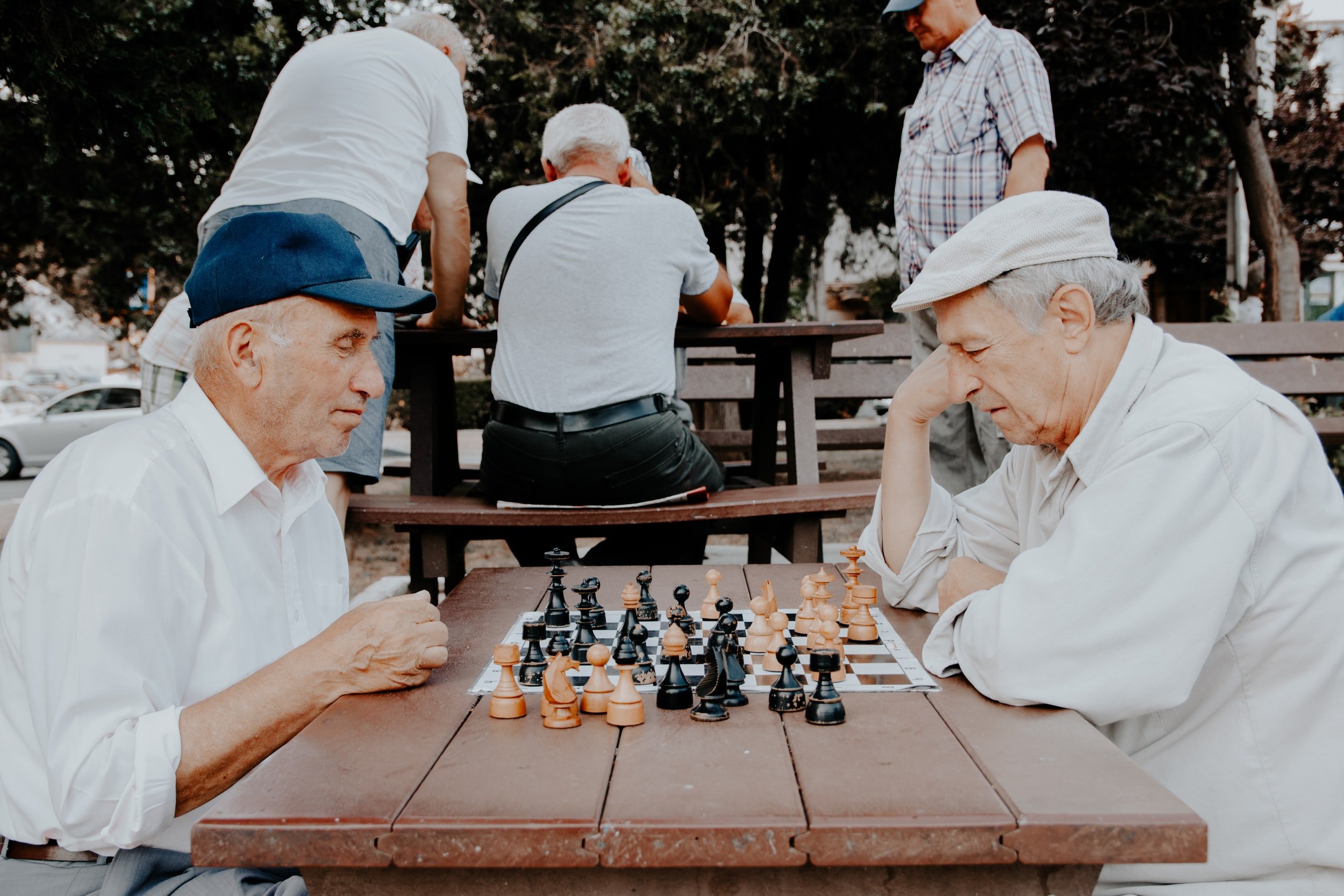
How To Learn Chess As An Adult (or, how I went from 300 to 1500 ELO in 9 months) — Alex Crompton

Five myths about chess - The Washington Post
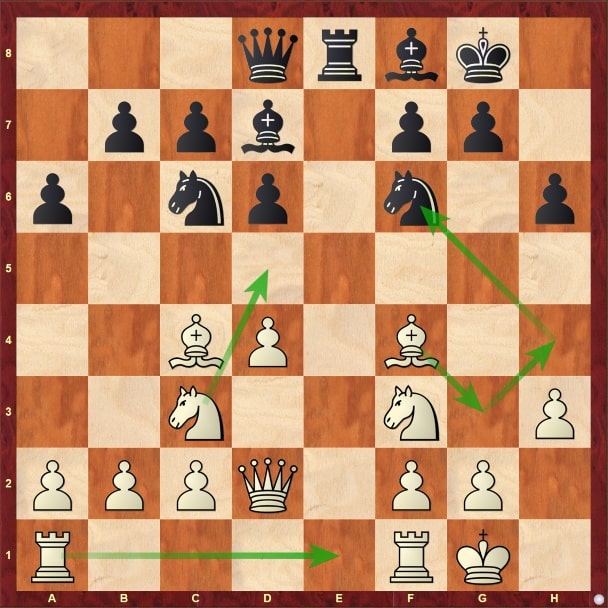
Beginner Chess Strategy: 5 Must-Know Tips - by GM Noël Studer
/pic260745.jpg)
Chess, Board Game

Are Puzzles Useful For Chess Improvement? (Hint: YES!)
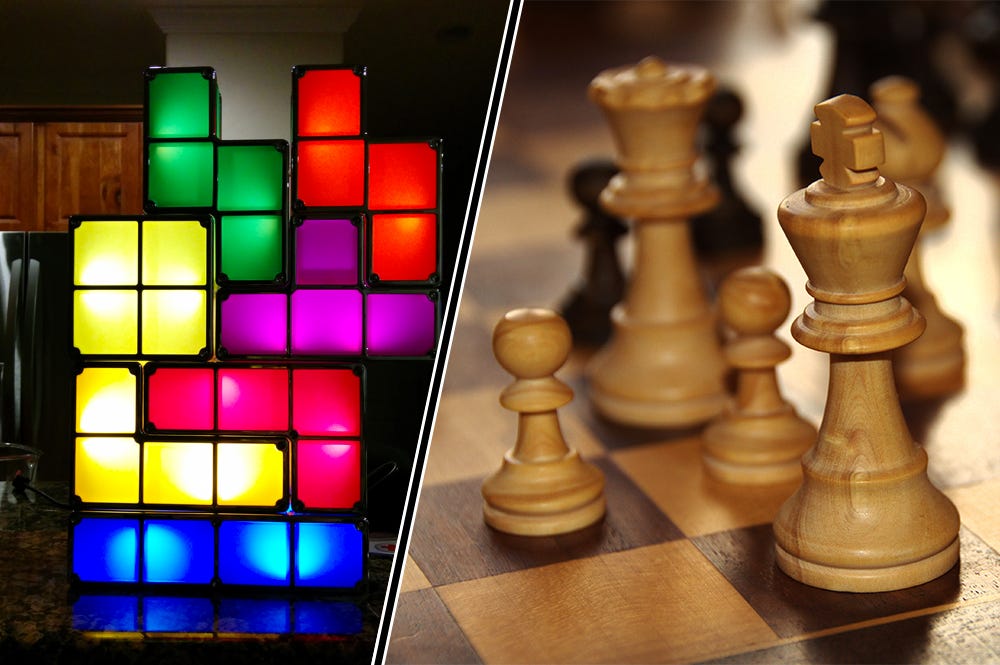
Your Life Is Tetris. Stop Playing It Like Chess., by Tor Bair, Mission.org
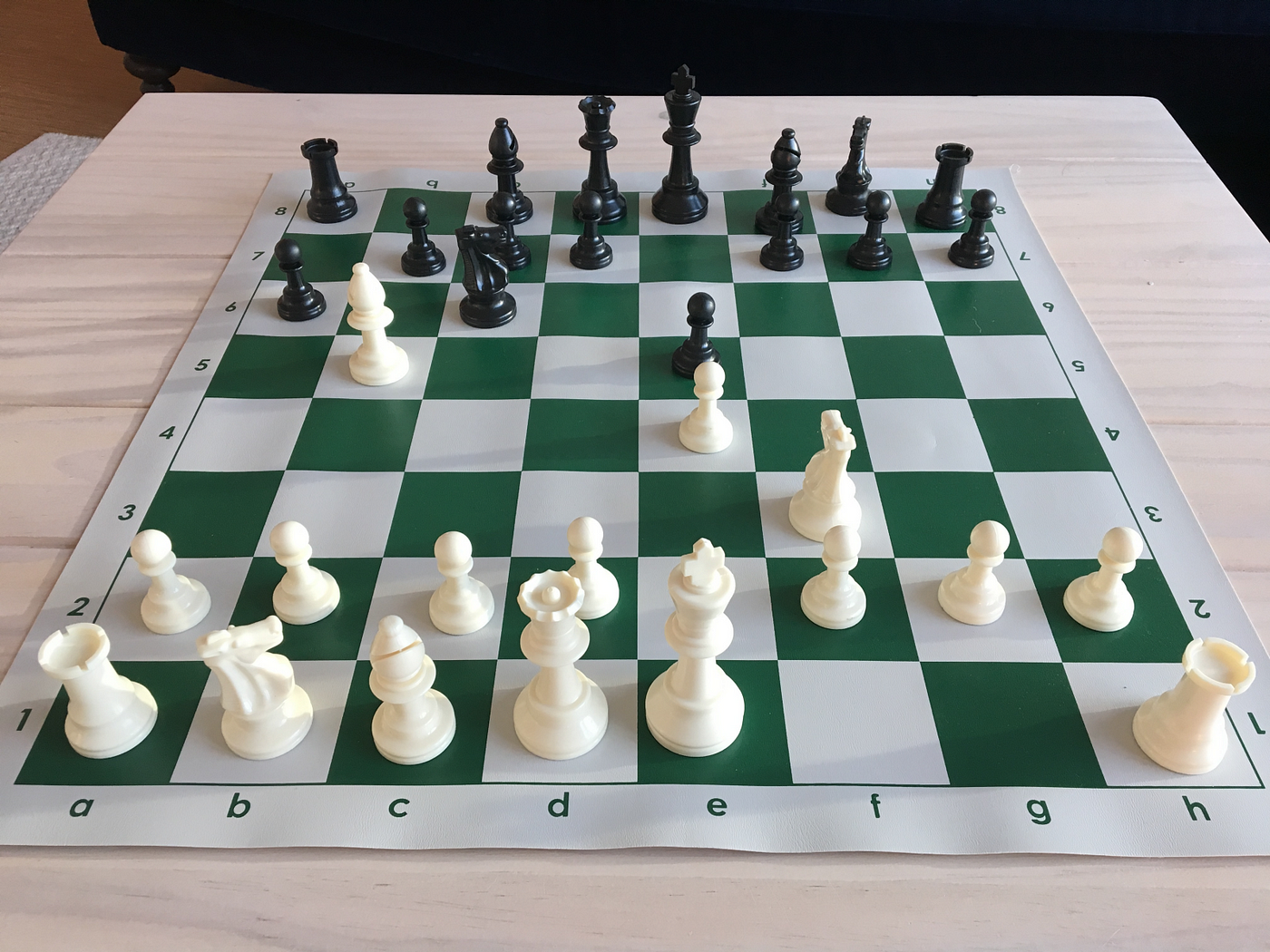
My month-long quest to become a chess master from scratch, by Max Deutsch
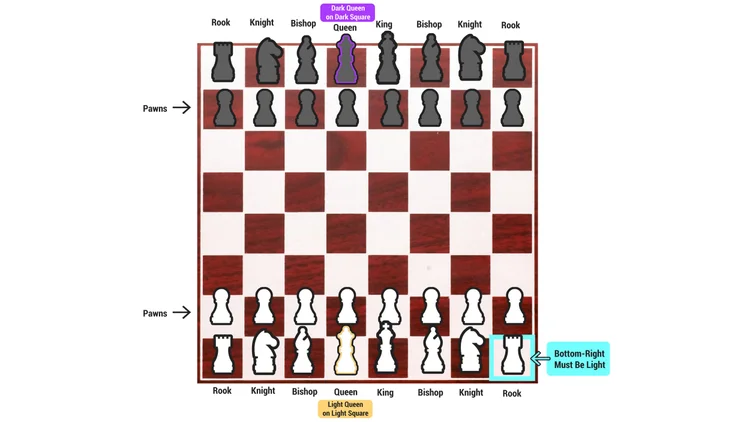
How to Set Up a Chess Board—Explained — Mashup Math
:max_bytes(150000):strip_icc()/chess-sets-for-kids-6541315-f2dc70b8695943059b8deb59836ccfe2.jpg)
The 14 Best Chess Sets for Kids

How to win Chess in 7 moves! (or at least capture their Queen)

7 Tips on How to Play Chess Alone

7 Steps to Better Chess, Book by Eric Schiller, Official Publisher Page

Fun Family Chess Set for Kids & Adults - Wooden Kids Chess Board with Colorful and Simple Instruction - Learn to Play Chess, Learning Games for Kids, Boys & Girls Ages
Recomendado para você
-
 How to Play Chess: Setup, Rules, & Gameplay27 fevereiro 2025
How to Play Chess: Setup, Rules, & Gameplay27 fevereiro 2025 -
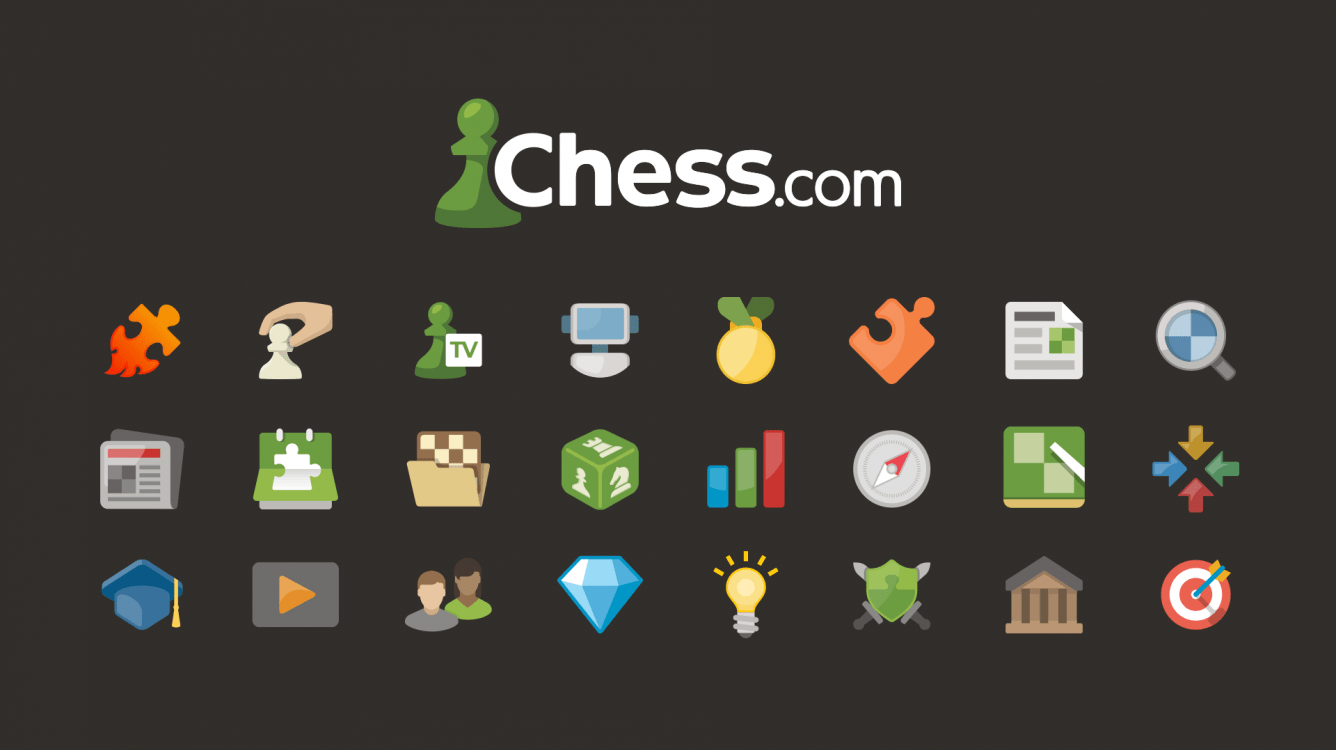 The Complete Guide To Features27 fevereiro 2025
The Complete Guide To Features27 fevereiro 2025 -
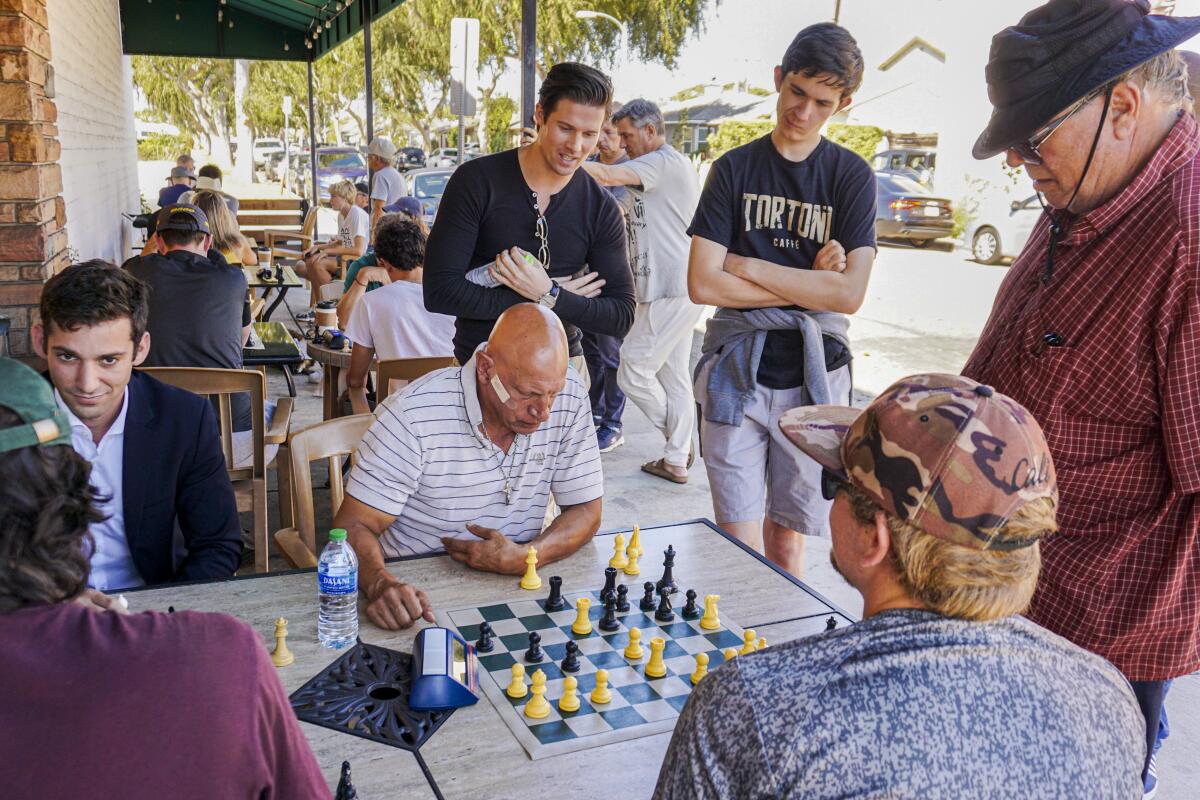 Where to play pickup chess games in Los Angeles - Los Angeles Times27 fevereiro 2025
Where to play pickup chess games in Los Angeles - Los Angeles Times27 fevereiro 2025 -
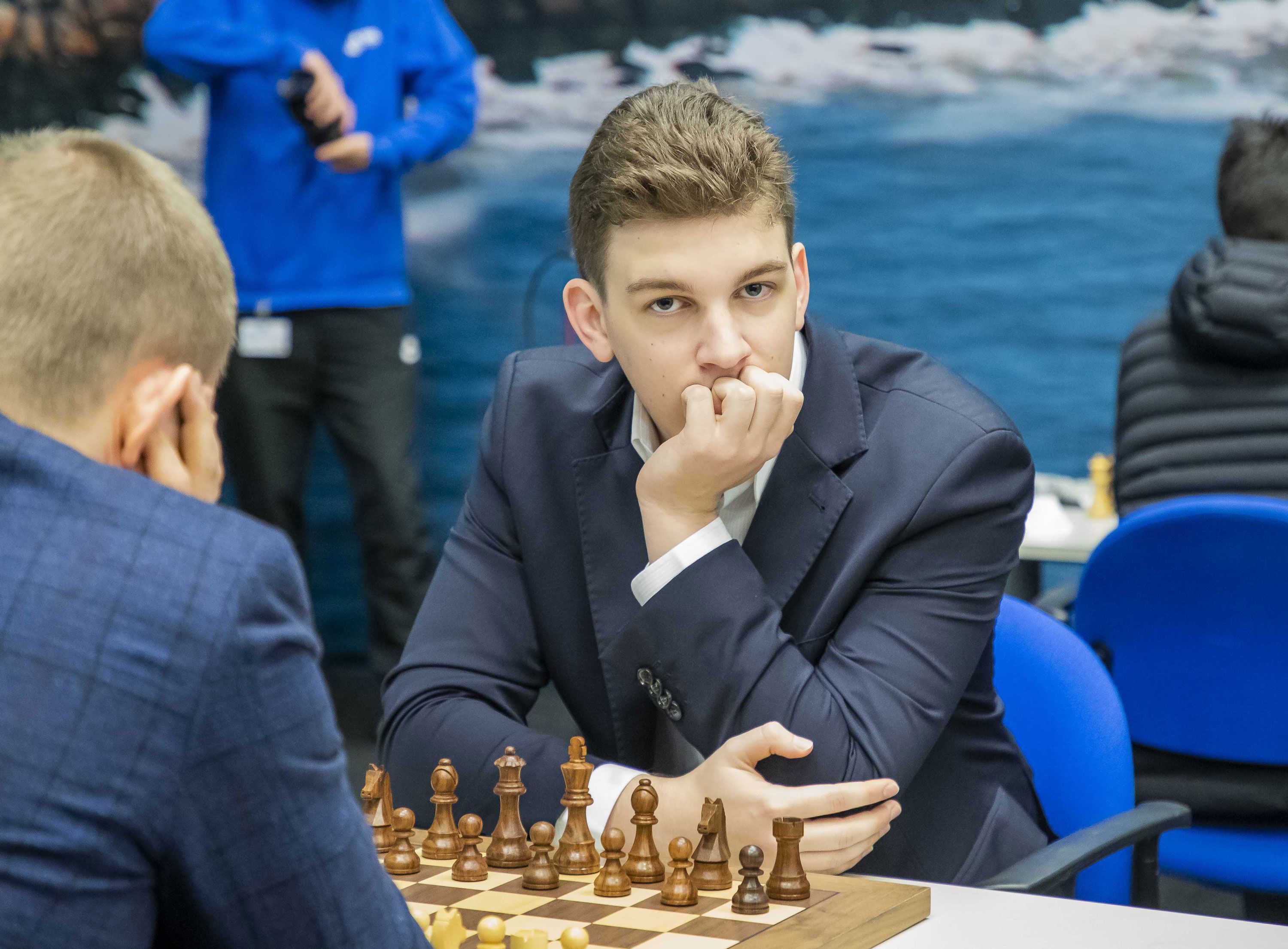 Magnus Carlsen: How to become a chess grandmaster27 fevereiro 2025
Magnus Carlsen: How to become a chess grandmaster27 fevereiro 2025 -
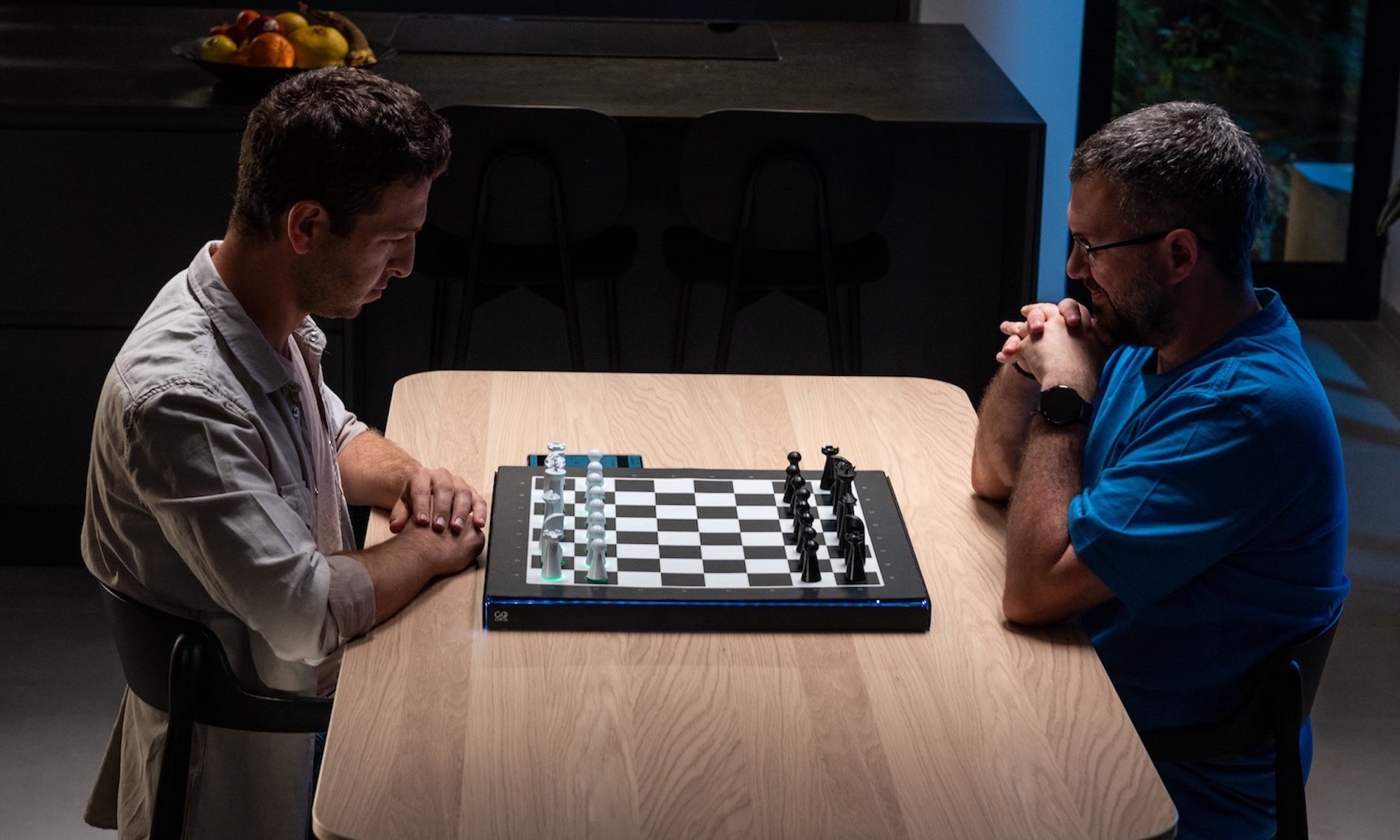 Review: GoChess AI-driven chessboard27 fevereiro 2025
Review: GoChess AI-driven chessboard27 fevereiro 2025 -
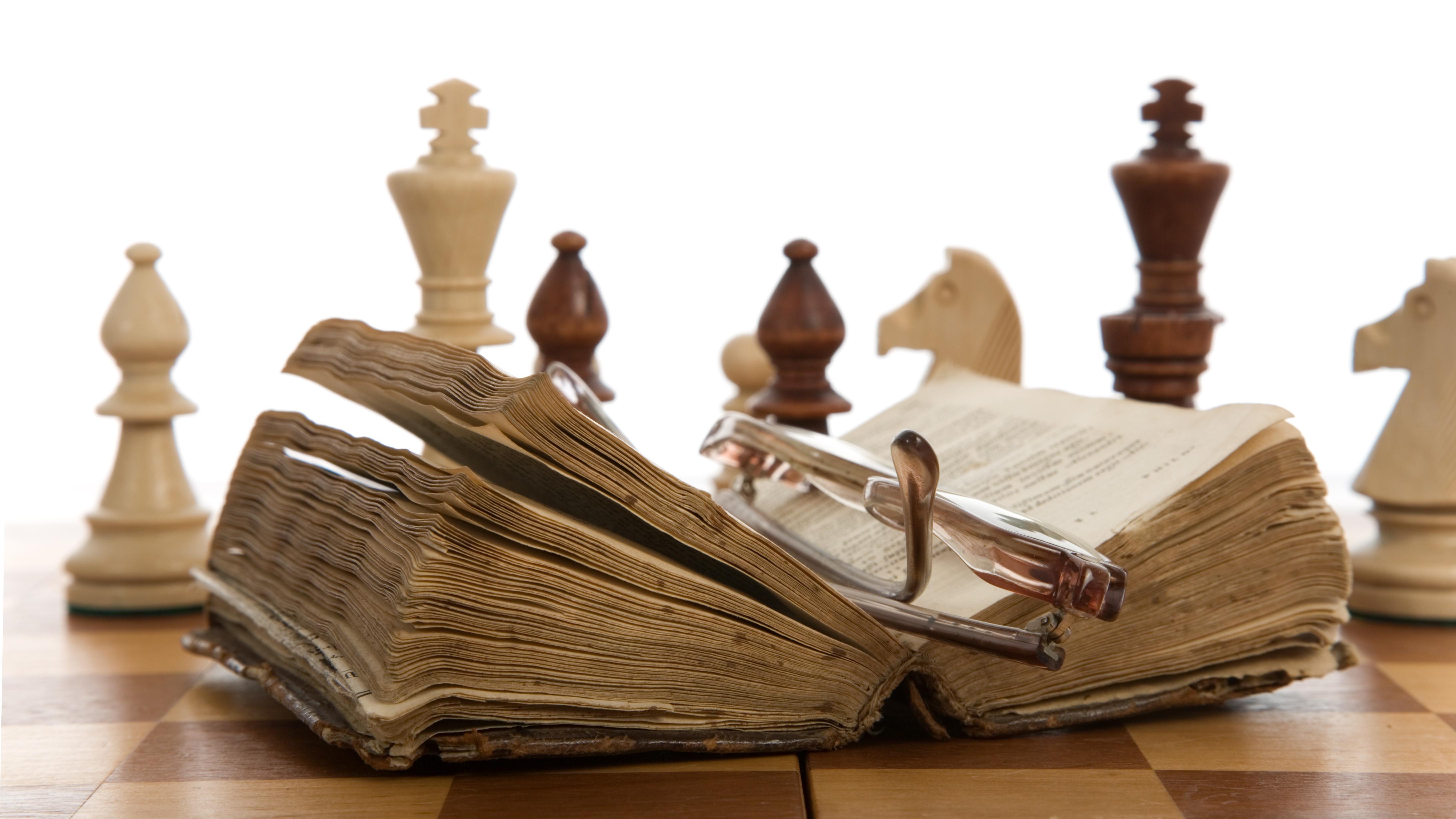 Chess Quotes You May Not Have Heard Before27 fevereiro 2025
Chess Quotes You May Not Have Heard Before27 fevereiro 2025 -
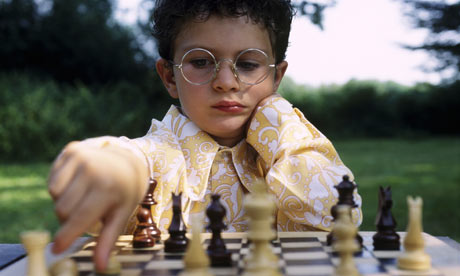 Do you ever play Chess against yourself? - Chess Forums27 fevereiro 2025
Do you ever play Chess against yourself? - Chess Forums27 fevereiro 2025 -
 How to Play Chess with Yourself27 fevereiro 2025
How to Play Chess with Yourself27 fevereiro 2025 -
 Is It Beneficial to Play Chess Against Yourself? (Seven Tips)27 fevereiro 2025
Is It Beneficial to Play Chess Against Yourself? (Seven Tips)27 fevereiro 2025 -
 How To Play With Yourself In Chess.com (BEST Way!)27 fevereiro 2025
How To Play With Yourself In Chess.com (BEST Way!)27 fevereiro 2025
você pode gostar
-
 Statue Legend JoJo's Bizarre Adventure Part 3 54. Oingo & amp; Boingo (prototype-colored supervision / Hirohiko Araki) about 190mm PVC & amp; ABS-painted PVC Figure by Di Morutobene : Toys27 fevereiro 2025
Statue Legend JoJo's Bizarre Adventure Part 3 54. Oingo & amp; Boingo (prototype-colored supervision / Hirohiko Araki) about 190mm PVC & amp; ABS-painted PVC Figure by Di Morutobene : Toys27 fevereiro 2025 -
Online Teaching Course by Ask.Video - Microsoft Apps27 fevereiro 2025
-
 ARQUIVO Topo de bolo Barbie - Topo e corte27 fevereiro 2025
ARQUIVO Topo de bolo Barbie - Topo e corte27 fevereiro 2025 -
 MVU Originals - Imran Sarwar27 fevereiro 2025
MVU Originals - Imran Sarwar27 fevereiro 2025 -
 On Netflix (American) it says that attack on titan is leaving Netflix. Does anybody somehow know if they are actually removing it or refining it and adding season two. : r/attackontitan27 fevereiro 2025
On Netflix (American) it says that attack on titan is leaving Netflix. Does anybody somehow know if they are actually removing it or refining it and adding season two. : r/attackontitan27 fevereiro 2025 -
 Maquiagem Para Olhos Passo a Passo27 fevereiro 2025
Maquiagem Para Olhos Passo a Passo27 fevereiro 2025 -
 STRANGE Things You Didn't Know About Kylian Mbappé27 fevereiro 2025
STRANGE Things You Didn't Know About Kylian Mbappé27 fevereiro 2025 -
 Quiz: which Pokémon type suits you more?27 fevereiro 2025
Quiz: which Pokémon type suits you more?27 fevereiro 2025 -
 Sonic Origins Plus27 fevereiro 2025
Sonic Origins Plus27 fevereiro 2025 -
Monster High: A Assustadora Barreira de Coral (Dublado) – Filme27 fevereiro 2025
